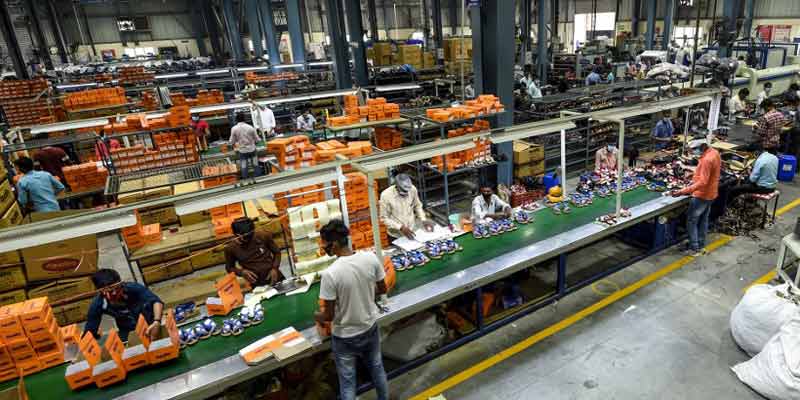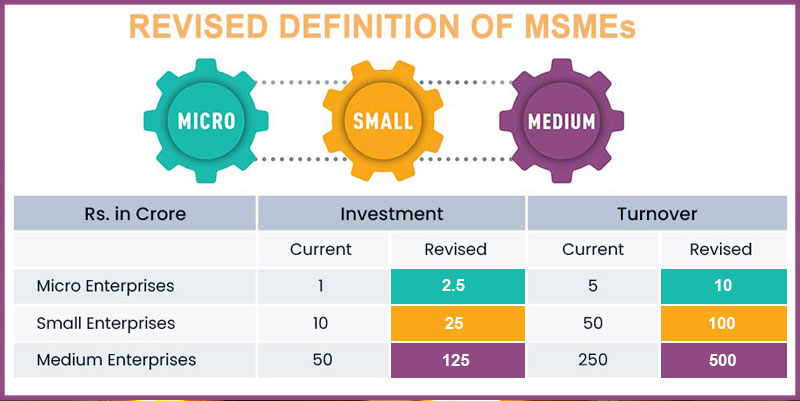- India
- Jun 27
World MSMEs Day
• The United Nations observes June 27 as ‘Micro, Small, and Medium-sized Enterprises Day’ to raise awareness of the tremendous contributions of MSMEs to the achievement of the United Nations Sustainable Development Goals (SDGs).
• This year’s theme is ‘Enhancing the role of MSMEs as drivers of Sustainable Growth and Innovation’.
Why is the MSME sector important worldwide?
• MSMEs account for 90 per cent of businesses, 60-70 per cent of employment and 50 per cent of GDP worldwide.
• They also account for the majority of new job creation.
• As the backbone of societies everywhere they contribute to local and national economies and to sustaining livelihoods, in particular among the working poor, women, youth, and groups in vulnerable situations.
• MSMEs hold the potential to transform economies, foster job creation, and promote equitable economic growth if given adequate support.
• MSMEs are key sources of jobs, income, and local growth, especially for women, young people, and vulnerable groups. Their size and flexibility help build strong, fair, and sustainable communities.
• However, many of these businesses face serious challenges. They often struggle to get loans, deal with poor infrastructure, and work under tough conditions. Many operate informally, which limits their access to funding, legal rights, and government support.
• Today’s global challenges — like political tensions, climate change, and digital shifts — make it even harder for them to survive. Supply chain issues, higher costs, and uncertain markets have left many at risk. A huge global funding gap remains, despite clear opportunities to grow.
• To help these businesses succeed, better policies and more accessible funding are crucial.
• Support for skills training, innovation, and fairer rules can also make a big difference. Since many operate outside the formal system, making it easier to register, access benefits, and follow labour laws will help create better jobs and stronger economies.
MSME sector in India
• The Micro, Small and Medium Enterprises (MSME) sector has emerged as a highly vibrant and dynamic sector of the Indian economy contributing around 30 per cent of India’s GDP and over 45 per cent of India’s exports.
• It contributes significantly to the economy and social development of the country by fostering entrepreneurship and generating large employment opportunities at comparatively lower capital cost, next only to agriculture.
• Out of the 6.13 crore registered MSMEs in India, nearly 40 per cent are owned by women.
• According to registrations on Udyam Registration Portal and Udyam Assist Platform (UAP), the MSME sector in India is responsible for providing employment to 24.14 crore people.
• MSMEs are complementary to large industries as ancillary units. This sector contributes significantly to inclusive industrial development of the country.
• By fostering entrepreneurship, generating employment and promoting inclusive development, MSMEs continue to drive economic transformation at the grassroots level.
Revised Classification Criteria for MSMEs:
• The government notified significant revisions to the turnover and investment criteria for classifying Micro, Small, and Medium Enterprises (MSMEs), which came into effect from April 1.
1) Micro Enterprises:
• Investment Limit: Increased from Rs 1 crore to Rs 2.5 crore.
• Turnover Limit: Increased from Rs 5 crore to Rs 10 crore.
2) Small Enterprises:
• Investment Limit: Increased from Rs 10 crore to Rs 25 crore.
• Turnover Limit: Increased from Rs 50 crore to Rs 100 crore.
3) Medium Enterprises:
• Investment Limit: Increased from Rs 50 crore to Rs 125 crore.
• Turnover Limit: Increased from Rs 250 crore to Rs 500 crore.
Manorama Yearbook app is now available on Google Play Store and iOS App Store


